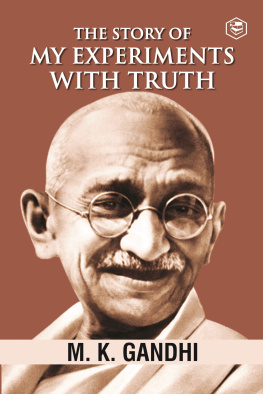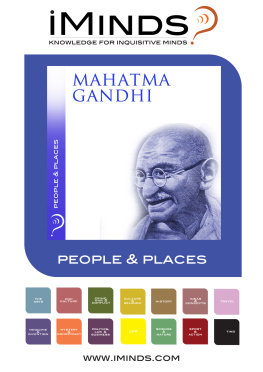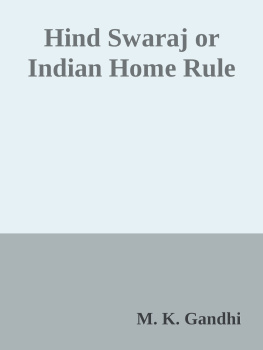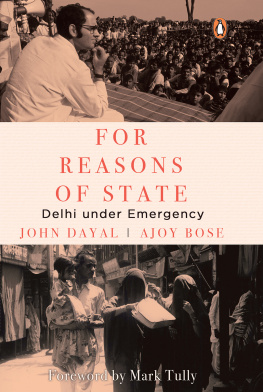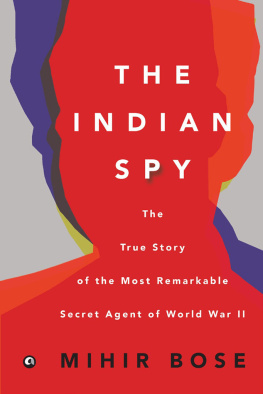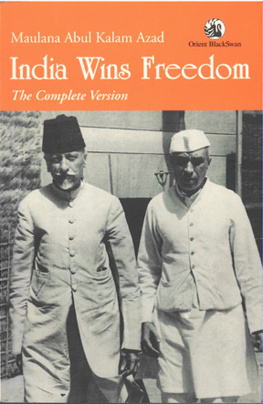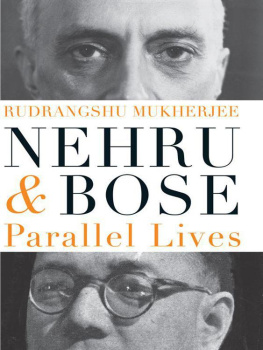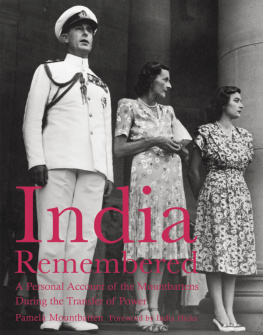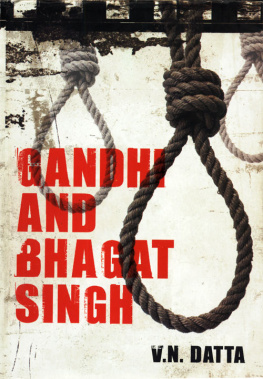BOSE OR GANDHI
Who Got India Her Freedom?
Maj Gen (Dr) G D Bakshi SM, VSM (Retd)

Copyright 2019 GD Bakshi
All rights reserved. No part of this publication may be reproduced, stored in a retrieval system, or transmitted in any form or by any means, electronic, mechanical, photocopying, recording or otherwise, without the prior written permission of the copyright owner.
ISBN978-93-87324-67-1Paperback
eISBN978-93-87324-68-8ebook
Published in India by Kalpana Shukla

KW Publishers Pvt Ltd
4676/21, First Floor,
Ansari Road,
Daryaganj,
New Delhi 110002
P:+91 11 43528107
E:
W:www.kwpub.com
The content of this book is the sole expression and opinion of its author, and not of the publisher. The publisher in no manner is liable for any opinion or views expressed by the author. While best efforts have been made in preparing the book, the publisher makes no representations or warranties of any kind and assumes no liabilities of any kind with respect to the accuracy or completeness of the content and specifically disclaims any implied warranties of merchant ability or fitness of use of a particular purpose.
The publisher believes that the contents of this book do not violate any existing copyright/intellectual property of others in any manner whatsoever. However, in case any source has not been duly attributed, the publisher may be notified in writing for necessary action.
Contents
Dedicated
To Netaji Subhash Chandra Bose
and
All Ranks past and present
of
The Indian National Army
Whose enormous sacrifices made us free.
We chose however
to carve not a line
and raise not a stone,
in their sacred memory.

The author wishes to specifically place on record his immense gratitude and debt to Dr Kalyan Kumar Dey, author of the excellent book Netaji Subhas : The Liberator of Indian Subcontinant, for permission to quote extensively from his research work. The author is also deeply indepted to Dr Mithi Mukherji of the University of Colorado for permission to quote extensively from her most insightful book India in the Shadow of Empire : A Legal and Political History 1914-1950. I also wish to record my gratitude to my wife Suneeta for typing and editing this work and to my children, Aditya and Purnima for their constructive suggestions and insights. I thank my grand children Samar and Anahita for letting me use the computer while they sportingly played their computer games on the lap top. Lastly, I am indebted to Ms Kalpana Shukla and Jose Mathew of KW Publishers for their excellent editorial and production support and encouragement without which this book would not have been possible.
Maj Gen (Dr) GD Bakshi , SM, VSM (Retd)
Key British Decision Makers
1945-47

Prologue
Defining The Civilisational Context of The Debate

The Destruction of the Idea of India
A historical overview of the trajectory of the civilisational nation state of India , is very essential to put this book and its very challenging themeof who got India her freedom and how in proper perspective. No other nation in the world has faced such a concerted assault upon its identity and sense of nationhood and self, than India . Nation states are entities that have a temporal existence over vast stretches of space and across centuries in time. The problem with India was the comprehensive destruction it faced via a series of bloody invasions. These had originally started in the seventh century AD itself, with the invasions of the Hindu kingdoms of Afghanistan and Sindh by the Arab armies. The little-known fact of history is that, for three centuries, the Hindu Kingdoms of Kabul and Zabul had held off the Arab Invaders. In fact the all-conquering Arab Armies suffered their first major defeat in Hindu Afghanistan (and have since been talking of the unfinished Gazwa-e-Hindthe final battle for the conquest of India, which will happen at the end of time). The Arab invasion of Sindh was halted by the Gujjar-Pratiharas on the borders of Rajasthan, contained and prevented from advancing any further for the next two centuries.
The ramparts of India finally fell when the Afghan Hindus were converted to Islam and mounted a series of raids on North India to loot its fabulous wealth. These started in the tenth century AD as bloody raids for plunder, gold and women and once the fact of Indias lack of unity, pacific nature and military weakness were thoroughly exposed, came the wars of conquest. From the thirteenth century onwards India faced a series of invasions where the marauders who came to loot and rape, stayed back to rule. So vast was the temporal extent of India, however, that no single invader, not the Mughals nor the British could conquer it in its entirety. Thus enclaves of the Indian culture survived and thrived in the southern parts of India for centuries even as the Northern Parts were being overrun by the Armies of Islam. Thus even while North India fell to Afghans, Mongols, Mughals and, much later, Persian invaders, the Cholas of the South were making naval forays and spreading Indian culture and values and its arts and architecture to large parts of South East Asia.
Thus it was the sheer size and extent and the very depth of the temporal existence of the Indian civilisation in time and space, that prevented this civilisation from being wholly overrun and destroyed . It was simply its great depth in space and time that saved the Indian civilisation from being wiped out . Few historians, however, highlight the remarkable fact that for over 400 years, i.e., from the thirteenth to the seventeenth century, India was ruled by Muslim invaders. Yet over 80% of the Indian population remained Hindu . This is a stark contrast with the equally ancient and flourishing civilizations of Egypt, Mesopotamia, Central Asia and Iran which were converted en masse to Islam. There is not a trace of their original indigenous culture left today. The Parsis in India are all that remains of the flourishing Persian civilisation of Iran. How did this miracle happen? India proved to be a weak state but was a strong society. Thus once the Hindu states in India were militarily overrun, Indian society deliberately splintered itself into a plethora of Jatis, varna and caste groups which kept their flocks together by the severe threat of social boycott and excommunication. They threatened all who converted with excommunicationvia stopping all ties of consanguineous eating or marriage ( Roti, beti ka rishta , ties of eating together and giving daughters in marriage). These were desperate, last- ditch measures to preserve gene pool purity. Thus a plethora of castes and Gotra groups arose in India which tightly shepherded their local flocks via largely localised jat biradaries or clan groupings. The Hindu political states were destroyed by invading Muslim armies but the natives held themselves together in the face of untold persecution by banding together in Jat and Biradari clusters at the local level. This prevented comprehensive penetration of Hindu Society by the proselytising attempts of Islam. Despite conquest by military force, Islam was not able to convert the entire mass of the huge Hindu population to Islam. The sheer contrast with what happened in Egypt, Mesopotamia, Central Asia and Iran could not be more marked.
Next page

